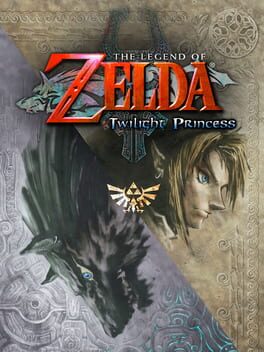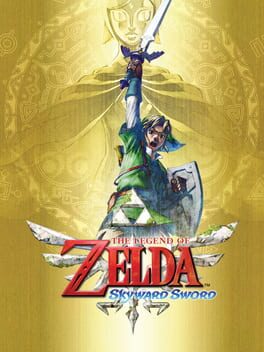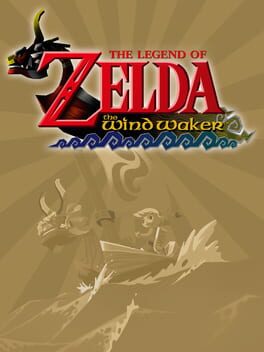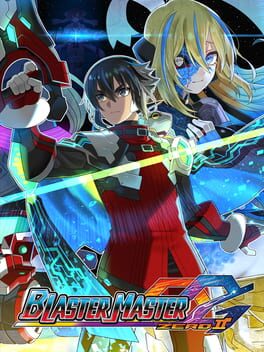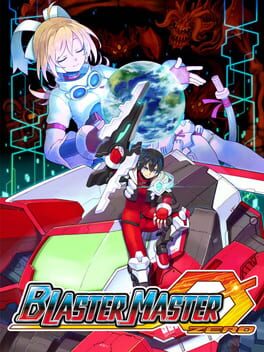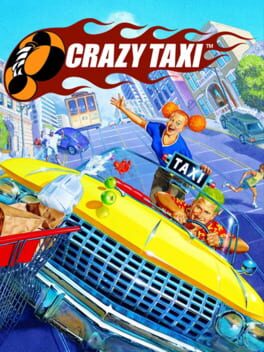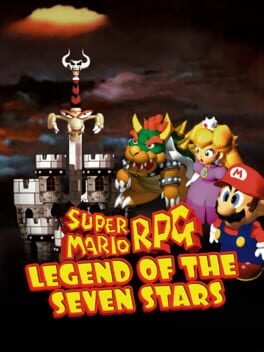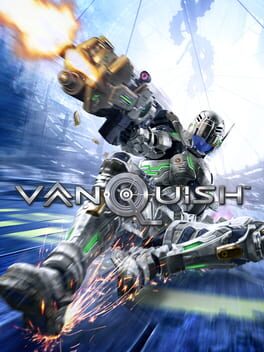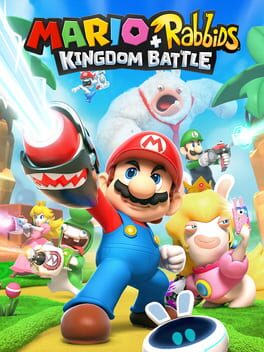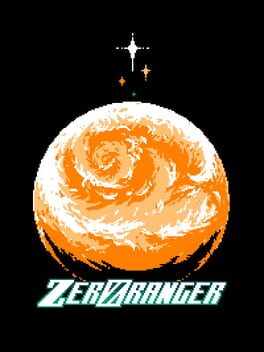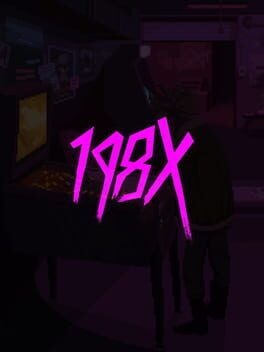Ephemeris
2012
In all the worst ways, Twilight Princess is Ocarina of Time 2.0
It doubles down on everything that ages poorly from that first polygonal Zelda game, while shedding or shredding what worked. Despite Ocarina's haptic inferiority to the tactile Link to the Past, it at least conveyed a sense of solid materiality. Whether young or mature, Link had a weight, heft, and momentum.
That solidity is absent in Twilight. It inherits the floaty disconnect of input-to-motion from the cartoony Wind Waker, where such a ratio was appropriate. Twilight tries so hard to be Ocarina's edgy older bro, but it's undercut by the unpersuasive, ungainly adventure puppet that is Link this time around. Especially if you're playing on Wii, where your button-press-substitute swings never stick the timing of the result onscreen.
Wolf-Link was different and unexpected, but it's hard to believe the emotionless man-in-green and the expressive canine are the same character -- switching between them feels less like a transformation and more like a Final Fantasy battle swap.
On paper, Twilight was everything Zelda fans wanted. More dungeons, more bosses, more items, more shadows, more story events, more intimidation, more more more. And that's exactly its problem.
Because when TP was released, it was already outdated.
Outclassed and outshone by the true successor of the adventure genre: Shadow of the Colossus, released one year prior.
A pensive, atmospheric quest, where mechanics and aesthetics bled together into a harmonious experience. A thoughtul exercise in design: 16 bosses, no minions, no sidequests. Just you, your horse, your goal, and the evocative ruins of the Forgotten Land. A far cry from the semi-dark carnival of Twilight Princess -- kitschy as Chuck E Cheese and stiffer than its animatronics.
I don't understand how anyone, after the majestic world of SOTC, could enjoy the segmented playground of Twilight Hyrule. The seams are apparent everywhere, most obviously betrayed in the final battle when Ganon puts up a literal magic fence in the open field to force a duel (why didn't he just put the fence right around Link's body and stab him in the chest?).
Even TP's best ideas wash out:
- Midna, intially interesting as the UN-sympathetic fairy, has no functional difference to Navi. She's here to nag.
- The Ancient One teases with his sword techniques: could he be the ghost of the Hero of Time? You might wonder, but TP doesn't. Will he figure into the final solution? NOPE. He's merely an extra.
- Zant is an interesting villain: truly intimidating upfront yet unmasked as a pathetic, resentful usurper. Too bad this interesting arc is hijacked by Ganon.
But the most egregious betrayal regards the Fused Shadows. You are constantly told that they're dangerous, forbidden, and no one should have them -- but there's no other way to defeat Zant. That's pretty new territory for Zelda. The first time I gained one and that ominous music played upon acquisition, I was jazzed. I thought, "Wow, what'll happen next? What does this mean for Link and for me as the player?" You're even shown an extensive cut-scene demonstrating just what this 'dark' power does to peoples' minds and souls.
But guess what? It means NOTHING.
There is no conundrum. There is no choice.
No qualm with Midna over her enthusiasm for the Shadows. No qualm over what Midna even IS in the first place. All that warning from the Light Spirits about the Twlight people and their powers, but guess what? There is NEVER a moral dilemma. The second half of the game feels completely unaware of what happened in the first. For crying out loud, you're looking for the Zelda equivalent of the atomic bomb and there is NO discussion about whether it should be used or not.
On all fronts, Twilight Princess was a disappointing, clunky, middling affair - the nadir of Zelda design. The modern reboots, Breath of the Wild and Tears of the Kingdom, while not without their (often substantial) issues, represent a direction far more in line with Zelda's original ethos. I hope Nintendo ignores the clamoring from some corners for a return to the dismal Twilight style of "adventure" game.
It doubles down on everything that ages poorly from that first polygonal Zelda game, while shedding or shredding what worked. Despite Ocarina's haptic inferiority to the tactile Link to the Past, it at least conveyed a sense of solid materiality. Whether young or mature, Link had a weight, heft, and momentum.
That solidity is absent in Twilight. It inherits the floaty disconnect of input-to-motion from the cartoony Wind Waker, where such a ratio was appropriate. Twilight tries so hard to be Ocarina's edgy older bro, but it's undercut by the unpersuasive, ungainly adventure puppet that is Link this time around. Especially if you're playing on Wii, where your button-press-substitute swings never stick the timing of the result onscreen.
Wolf-Link was different and unexpected, but it's hard to believe the emotionless man-in-green and the expressive canine are the same character -- switching between them feels less like a transformation and more like a Final Fantasy battle swap.
On paper, Twilight was everything Zelda fans wanted. More dungeons, more bosses, more items, more shadows, more story events, more intimidation, more more more. And that's exactly its problem.
Because when TP was released, it was already outdated.
Outclassed and outshone by the true successor of the adventure genre: Shadow of the Colossus, released one year prior.
A pensive, atmospheric quest, where mechanics and aesthetics bled together into a harmonious experience. A thoughtul exercise in design: 16 bosses, no minions, no sidequests. Just you, your horse, your goal, and the evocative ruins of the Forgotten Land. A far cry from the semi-dark carnival of Twilight Princess -- kitschy as Chuck E Cheese and stiffer than its animatronics.
I don't understand how anyone, after the majestic world of SOTC, could enjoy the segmented playground of Twilight Hyrule. The seams are apparent everywhere, most obviously betrayed in the final battle when Ganon puts up a literal magic fence in the open field to force a duel (why didn't he just put the fence right around Link's body and stab him in the chest?).
Even TP's best ideas wash out:
- Midna, intially interesting as the UN-sympathetic fairy, has no functional difference to Navi. She's here to nag.
- The Ancient One teases with his sword techniques: could he be the ghost of the Hero of Time? You might wonder, but TP doesn't. Will he figure into the final solution? NOPE. He's merely an extra.
- Zant is an interesting villain: truly intimidating upfront yet unmasked as a pathetic, resentful usurper. Too bad this interesting arc is hijacked by Ganon.
But the most egregious betrayal regards the Fused Shadows. You are constantly told that they're dangerous, forbidden, and no one should have them -- but there's no other way to defeat Zant. That's pretty new territory for Zelda. The first time I gained one and that ominous music played upon acquisition, I was jazzed. I thought, "Wow, what'll happen next? What does this mean for Link and for me as the player?" You're even shown an extensive cut-scene demonstrating just what this 'dark' power does to peoples' minds and souls.
But guess what? It means NOTHING.
There is no conundrum. There is no choice.
No qualm with Midna over her enthusiasm for the Shadows. No qualm over what Midna even IS in the first place. All that warning from the Light Spirits about the Twlight people and their powers, but guess what? There is NEVER a moral dilemma. The second half of the game feels completely unaware of what happened in the first. For crying out loud, you're looking for the Zelda equivalent of the atomic bomb and there is NO discussion about whether it should be used or not.
On all fronts, Twilight Princess was a disappointing, clunky, middling affair - the nadir of Zelda design. The modern reboots, Breath of the Wild and Tears of the Kingdom, while not without their (often substantial) issues, represent a direction far more in line with Zelda's original ethos. I hope Nintendo ignores the clamoring from some corners for a return to the dismal Twilight style of "adventure" game.
Next in line after the stale Twilight Princess, Skyward Sword seemed like a breath of fresh air, featuring warm characters, a lighter aesthetic, and upgradeable tools. But its funhouse focus on motion controls felt worn out long before it was over (with the exception of a literally tiring sword-and-shield final duel -- an idea that needs revisiting).
In any case, Skyward's most damning legacy will be its theme park treatment of every space, both interior and exterior. The original exploratory ethos of Zelda is so absent here that it's hard to stomach the thought of ever replaying this prescriptive, tutorial-heavy entry in the series.
In any case, Skyward's most damning legacy will be its theme park treatment of every space, both interior and exterior. The original exploratory ethos of Zelda is so absent here that it's hard to stomach the thought of ever replaying this prescriptive, tutorial-heavy entry in the series.
The big daddy. Best game of all time. 10 out of 10 out of 10 awards spilling off the garage shelf. Yet here I am slapping it with a 5/10.
I bought into the hype when I was young, and replayed it over and over. Why? Probably because the game didn't actually live up to my expectations, and I was hoping, WILLING it to be better, be more than what it was, on each playthrough. As if I could Jedi-mind-trick it into being different, the way I hoped recorded VHS tapes would end differently than the last time.
In reality Ocarina is a slow, blocky, restrictive slog with suffocating geography.
The field impresses at first -- you can't even see the castle until you crest the hill -- but it's an empty polygonal arena with little interest. And the geography of Hyrule itself as a whole is unnatural and unconvincing (we wouldn't get a persuasive Hyrulean CG landscape until Breath of the Wild).
It's cool that you can chop up signs at different angles (the first and last time your sword direction matters), yet this pales next to the omnipresent friction and interactivity felt in Link to the Past.
Even the ballyhooed Z-targeting has a dubious pedigree -- every 3D Zelda game since has been straight-jacketed by OoT's approach to combat.
I think the real magic of OoT was watching a polygonal adventure puppet, complete with sword and shield, react contextually to the environment. Look how he jumps vs how he hops. Hold against the block and watch him pull himself up. Leave him alone and see how he adjusts his gear. It's really a test of gamer vs developer, i.e. "did those designers think of this?" It's the bullshit of Bastion, impressing us with a narrator that "notices" how we act up.
But there is none of this dog-and-pony hustle in the original Legend of Zelda. There it's player vs world. Can you discern the rules, even if the game-space never spells them out for you in explicit text? Can you figure out the telos? It has been sad to watch Nintendo, the original purveyor of video game imagination, rely more-and-more over the years on carnival magician tricks.
I bought into the hype when I was young, and replayed it over and over. Why? Probably because the game didn't actually live up to my expectations, and I was hoping, WILLING it to be better, be more than what it was, on each playthrough. As if I could Jedi-mind-trick it into being different, the way I hoped recorded VHS tapes would end differently than the last time.
In reality Ocarina is a slow, blocky, restrictive slog with suffocating geography.
The field impresses at first -- you can't even see the castle until you crest the hill -- but it's an empty polygonal arena with little interest. And the geography of Hyrule itself as a whole is unnatural and unconvincing (we wouldn't get a persuasive Hyrulean CG landscape until Breath of the Wild).
It's cool that you can chop up signs at different angles (the first and last time your sword direction matters), yet this pales next to the omnipresent friction and interactivity felt in Link to the Past.
Even the ballyhooed Z-targeting has a dubious pedigree -- every 3D Zelda game since has been straight-jacketed by OoT's approach to combat.
I think the real magic of OoT was watching a polygonal adventure puppet, complete with sword and shield, react contextually to the environment. Look how he jumps vs how he hops. Hold against the block and watch him pull himself up. Leave him alone and see how he adjusts his gear. It's really a test of gamer vs developer, i.e. "did those designers think of this?" It's the bullshit of Bastion, impressing us with a narrator that "notices" how we act up.
But there is none of this dog-and-pony hustle in the original Legend of Zelda. There it's player vs world. Can you discern the rules, even if the game-space never spells them out for you in explicit text? Can you figure out the telos? It has been sad to watch Nintendo, the original purveyor of video game imagination, rely more-and-more over the years on carnival magician tricks.
The most complete story of any Legend of Zelda game to date: character arcs, believable motivations, succinct use of prior Zelda lore, and an affecting bittersweet ending.
But though the initial promise of the open sea is alluring, the realization falls into Battleship map grid tedium (all the more ironic considering the most amusing mini-game in Wind Waker is an actual Battleship tribute).
But though the initial promise of the open sea is alluring, the realization falls into Battleship map grid tedium (all the more ironic considering the most amusing mini-game in Wind Waker is an actual Battleship tribute).
Though it is based on the Ocarina game engine, in substance Majora's Mask is unlike any Zelda title, or any other game for that matter. Through the 72-hour Groundhog Day cycle, sinners and saints alike cope with the end of the world. Solving the real-time problems of Termina's eclectic denizens kindles fascination with the ordinary and grants dignity to the mundane. Most profound of all: at the center of the apocalyptic moon sits an ostracized, resentful child -- a warning to both shunners and the shunned.
All the design subtlety of a LEGO Duplo set. "Ooooh lookout for the icky square - don't touch it you'll take damage!" Some telegraphing is fine but sheesh -- when you can play the entire screen in your head at first glance, what's the point in going through the motions?
The first Zero retained some of the mystery and opaqueness of the original Blaster Master to its benefit. That's entirely gone here.
Pointless dialogue, weird side-characters, unmemorable music, and unintuitive tools.
The first Zero retained some of the mystery and opaqueness of the original Blaster Master to its benefit. That's entirely gone here.
Pointless dialogue, weird side-characters, unmemorable music, and unintuitive tools.
2017
This review contains spoilers
I can't think of a game that confuses me more than Rain World, to the point that I doubt I can honestly give it any score at all. It defies measurement, for good and ill.
tl;dr – Rain World is a po-faced “Shaggy Dog” story in video game form that I can't quite leave alone even though I hate every moment.
First let's get what I like out of the way. It is an aggressive middle finger to the metroidvania genre (always a cause to celebrate). No upgrades, no cracked walls, no “that-ledge-is-too-high-when-do-I-get-the-double-jump,” and no Fisher-Price lock-and-key obviousness. Oh you think you'll find a treasure chest in the far-flung corner? NOPE SCREW YOU – only rain and death await thee, LOL.
Though I hate the “crapsack world” theme (more on that later), I can't deny that the world feels – alive. You don't know what it's going to do. You don't know where enemies will show up. Or how many. Are the scavengers dangerous? What about the giant bugs? There's a flicker of Subnautica's awe and fear with each encounter – that delicious tension of split-second decision: friend or foe?
The game doesn't care if three white lizards decide to park in the only viable path forward with no weapons available. This is frustrating as hell – but it's kinda real. No one designed this beyond some spawn points. It's just how it happened. I must admit this is compelling even though I'm tearing my hair out. I wish more games at least toyed with this beyond the rogue-like genre.
But Rain World's pros come with flip-side cons. What I dislike:
The rain cycle. Yes the thing in the title. It just ruins what the game has going for it. It would be more enjoyable to wait out enemies and sneak around if you didn't have a damnable ticking death clock of irregular length to stress you out. It sucks half the fun out of exploration. Why go looking into a far off corner if the Overseer's shelter hint is pointing the other way? The shelters are far and few between and food can be even more elusive. You've got to eat enough for hibernation and reach a shelter before the clock ticks down, all while avoiding predators more-often-than-not parked in the one path forward (see the flip-side?).
“But you're supposed to take your time, raise your karma, feel out the area, you've gotta coexist with it, like it's a real habitat!” But it's not a real habitat. It's merely a literalization, a words-become-worlds manifestation from the lips of that awful 'teacher' in Beasts of the Southern Wild: “YOU. ARE. MEAT!”
“But-but-but all the A.I., and the ecosystem – I saw YouTube videos about it, it's real!” Promise you, it's not. It's a crapsack world, i.e. 100% contrived. It's a thousand screens of intentional degradation and disrepair – a pathological bludgeoning of post-apocalyptic mind-numbing sameness. Yes, it's all rendered very strikingly and no doubt lovingly by the artists, and at least the color-palettes change, but whether it's the yellow-sky farm array or the pitch-black citadel, it's a dead place out to get you and there's no way to live in it. There's no welcoming Elysian field to balance the rot. At best you kind of make peace with the decay and move on before the next rain.
For all the tool-savvy smarts of your controllable slug-cat, there's no way to cultivate an area or make your own shelter. I'm not saying the game should be a farming sim, but if it wants you to take your time, it needs to let you leave your stamp. It needs a Resident-Evil typewriter room. A place with a pensive tune and a trunk. A place that lets you catch your breath before heading back into hell. And the rain shelters ain't it.
Finally, Shaggy Dog time. What I loathe:
The game's story sells you a bill of goods. Your character slips from the saving grip of its slugcat family, falling down (supposedly) into the land of Rain World. Then you start the game. What do you assume your goal is? To get back to your sluggycat family of course!
This. Never. Happens.
There's not a pip or squeak about your family for the rest of the game. The intro cinematic is a lie. It feels like the developers, upon play-testing, found that players had little motivation to progress through the game (due to all the disincentives already listed), so they felt the need to set up a false motivation at the beginning.
You can speculate all you want about the fate of the family, but it's in vain. Are they alive, somewhere in Rain World? Are they in a land far above it, where your sluggy fell from? Does each hibernation or death cycle pass just a day, a month, or a year? Or is it years? Decades? Eons? Has your slugcat family been dead since the first cycle? Are they rebirthing somewhere else? Is it just the regions of Rain World that are subject to the reincarnation cycle or is it the entire fictional planet? Does any of this even matter? Apparently NOT – the slugcat family is a red herring for which you will get no satisfaction.
“But the ascended host of faceless slugcats at the end – that's kind of like your family!”
This takes us, perhaps, to what I loathe most about Rain World.
I'm not a Buddhist by any stretch, but I have a healthy respect for the psychology of the chakras, and in my opinion, the chakras are poorly used and represented in this game. What does filling your stomach and surviving rain cycles have to do with ascension? Why does becoming prey reduce your level? In my readings, the chakras are all about enlightenment and state of mind – not food chain scoreboards.
The game is a one-sided cynic's reading of Buddhist Hinduism. All self-immolation, detachment, void, and darkness – it has no room for love, home, progress, and light. No, the cute pearl quests for Looks-To-The-Moon don't fix this. A glowing tree of ascended slugcats, shown for all of five seconds, doesn't balance the overwhelming Eldritch entity reducing you to a string of gray nothingness. That's the real heart of the game (and the developers): Lovecraftian horror.
This is why I hate Rain World.
It is a twenty-hour monument to despair.
tl;dr – Rain World is a po-faced “Shaggy Dog” story in video game form that I can't quite leave alone even though I hate every moment.
First let's get what I like out of the way. It is an aggressive middle finger to the metroidvania genre (always a cause to celebrate). No upgrades, no cracked walls, no “that-ledge-is-too-high-when-do-I-get-the-double-jump,” and no Fisher-Price lock-and-key obviousness. Oh you think you'll find a treasure chest in the far-flung corner? NOPE SCREW YOU – only rain and death await thee, LOL.
Though I hate the “crapsack world” theme (more on that later), I can't deny that the world feels – alive. You don't know what it's going to do. You don't know where enemies will show up. Or how many. Are the scavengers dangerous? What about the giant bugs? There's a flicker of Subnautica's awe and fear with each encounter – that delicious tension of split-second decision: friend or foe?
The game doesn't care if three white lizards decide to park in the only viable path forward with no weapons available. This is frustrating as hell – but it's kinda real. No one designed this beyond some spawn points. It's just how it happened. I must admit this is compelling even though I'm tearing my hair out. I wish more games at least toyed with this beyond the rogue-like genre.
But Rain World's pros come with flip-side cons. What I dislike:
The rain cycle. Yes the thing in the title. It just ruins what the game has going for it. It would be more enjoyable to wait out enemies and sneak around if you didn't have a damnable ticking death clock of irregular length to stress you out. It sucks half the fun out of exploration. Why go looking into a far off corner if the Overseer's shelter hint is pointing the other way? The shelters are far and few between and food can be even more elusive. You've got to eat enough for hibernation and reach a shelter before the clock ticks down, all while avoiding predators more-often-than-not parked in the one path forward (see the flip-side?).
“But you're supposed to take your time, raise your karma, feel out the area, you've gotta coexist with it, like it's a real habitat!” But it's not a real habitat. It's merely a literalization, a words-become-worlds manifestation from the lips of that awful 'teacher' in Beasts of the Southern Wild: “YOU. ARE. MEAT!”
“But-but-but all the A.I., and the ecosystem – I saw YouTube videos about it, it's real!” Promise you, it's not. It's a crapsack world, i.e. 100% contrived. It's a thousand screens of intentional degradation and disrepair – a pathological bludgeoning of post-apocalyptic mind-numbing sameness. Yes, it's all rendered very strikingly and no doubt lovingly by the artists, and at least the color-palettes change, but whether it's the yellow-sky farm array or the pitch-black citadel, it's a dead place out to get you and there's no way to live in it. There's no welcoming Elysian field to balance the rot. At best you kind of make peace with the decay and move on before the next rain.
For all the tool-savvy smarts of your controllable slug-cat, there's no way to cultivate an area or make your own shelter. I'm not saying the game should be a farming sim, but if it wants you to take your time, it needs to let you leave your stamp. It needs a Resident-Evil typewriter room. A place with a pensive tune and a trunk. A place that lets you catch your breath before heading back into hell. And the rain shelters ain't it.
Finally, Shaggy Dog time. What I loathe:
The game's story sells you a bill of goods. Your character slips from the saving grip of its slugcat family, falling down (supposedly) into the land of Rain World. Then you start the game. What do you assume your goal is? To get back to your sluggycat family of course!
This. Never. Happens.
There's not a pip or squeak about your family for the rest of the game. The intro cinematic is a lie. It feels like the developers, upon play-testing, found that players had little motivation to progress through the game (due to all the disincentives already listed), so they felt the need to set up a false motivation at the beginning.
You can speculate all you want about the fate of the family, but it's in vain. Are they alive, somewhere in Rain World? Are they in a land far above it, where your sluggy fell from? Does each hibernation or death cycle pass just a day, a month, or a year? Or is it years? Decades? Eons? Has your slugcat family been dead since the first cycle? Are they rebirthing somewhere else? Is it just the regions of Rain World that are subject to the reincarnation cycle or is it the entire fictional planet? Does any of this even matter? Apparently NOT – the slugcat family is a red herring for which you will get no satisfaction.
“But the ascended host of faceless slugcats at the end – that's kind of like your family!”
This takes us, perhaps, to what I loathe most about Rain World.
I'm not a Buddhist by any stretch, but I have a healthy respect for the psychology of the chakras, and in my opinion, the chakras are poorly used and represented in this game. What does filling your stomach and surviving rain cycles have to do with ascension? Why does becoming prey reduce your level? In my readings, the chakras are all about enlightenment and state of mind – not food chain scoreboards.
The game is a one-sided cynic's reading of Buddhist Hinduism. All self-immolation, detachment, void, and darkness – it has no room for love, home, progress, and light. No, the cute pearl quests for Looks-To-The-Moon don't fix this. A glowing tree of ascended slugcats, shown for all of five seconds, doesn't balance the overwhelming Eldritch entity reducing you to a string of gray nothingness. That's the real heart of the game (and the developers): Lovecraftian horror.
This is why I hate Rain World.
It is a twenty-hour monument to despair.
2017
During my brief play of the original 8-bit Blaster Master, I remember being awed by the change in scale as I switched between piloting and going on-foot. That shift still impresses in this remake, along with the tank's floaty jump and the arcade style power-ups (qualities that both remind of and predict Cave Story). Some of the upgrades surprise with their believable side-effects, like how the flame-thrower neutralizes slippery ice floors.
But the game is laughably easy; only the end areas show moderate challenge. The formalizing and entrenching of its proto-metroidvania structure also robs the remake of the original's mystique.
But the game is laughably easy; only the end areas show moderate challenge. The formalizing and entrenching of its proto-metroidvania structure also robs the remake of the original's mystique.
1999
It's funny. It's likable. It's quintessentially Mario while putting him quite out of his comfort zone. It manages to make those iconic question-mark-blocks mysterious again (something the franchise has handled poorly ever since).
Yet those three letters at the title's end dim the whole venture. Mario RPG is speedy for its kind (and much slower examples would follow in the first wave of 32-bit RPG's), yet its battles are still endless and redundant. The fact that the "timed hit system" was – and still is – considered a great innovation speaks more to the genre's ossification than to this game's actual quality.
Yet those three letters at the title's end dim the whole venture. Mario RPG is speedy for its kind (and much slower examples would follow in the first wave of 32-bit RPG's), yet its battles are still endless and redundant. The fact that the "timed hit system" was – and still is – considered a great innovation speaks more to the genre's ossification than to this game's actual quality.
2010
2018
This review contains spoilers
Zero Ranger intrigues with its bifurcated, two-part introduction, setting you up to expect twists and turns even as you hope for uninterrupted gung-ho triumph.
Unfortunately the story only grows more confusing as it progresses. While there are daring subversions of expectations (destroying a reward in order to progress or losing a save file if you lose the final battle), it's never clear who YOU, the player, are inhabiting. The story of the two "sisters" and their eternal battle becomes somewhat coherent in the ending, but the identities and motivations of the two main (or three?) pilots are left in limbo; in fact it's easy to get them mixed up with Erasure and Primeval Fighter. It's too difficult to get absorbed into the intricacies of the plot when there's no clear point of reference for the audience.
There's lots to love here -- the weapon switching, the forgiving hit points vs. punishing game play, the connection between meta-mechanics like continues and the actual story, the visual aesthetic -- it's a well-considered and thought out game design.
But you GOTTA root us in a clear point-of-view in if you're gonna go haywire with the plot turns and reveals
Unfortunately the story only grows more confusing as it progresses. While there are daring subversions of expectations (destroying a reward in order to progress or losing a save file if you lose the final battle), it's never clear who YOU, the player, are inhabiting. The story of the two "sisters" and their eternal battle becomes somewhat coherent in the ending, but the identities and motivations of the two main (or three?) pilots are left in limbo; in fact it's easy to get them mixed up with Erasure and Primeval Fighter. It's too difficult to get absorbed into the intricacies of the plot when there's no clear point of reference for the audience.
There's lots to love here -- the weapon switching, the forgiving hit points vs. punishing game play, the connection between meta-mechanics like continues and the actual story, the visual aesthetic -- it's a well-considered and thought out game design.
But you GOTTA root us in a clear point-of-view in if you're gonna go haywire with the plot turns and reveals
2019

